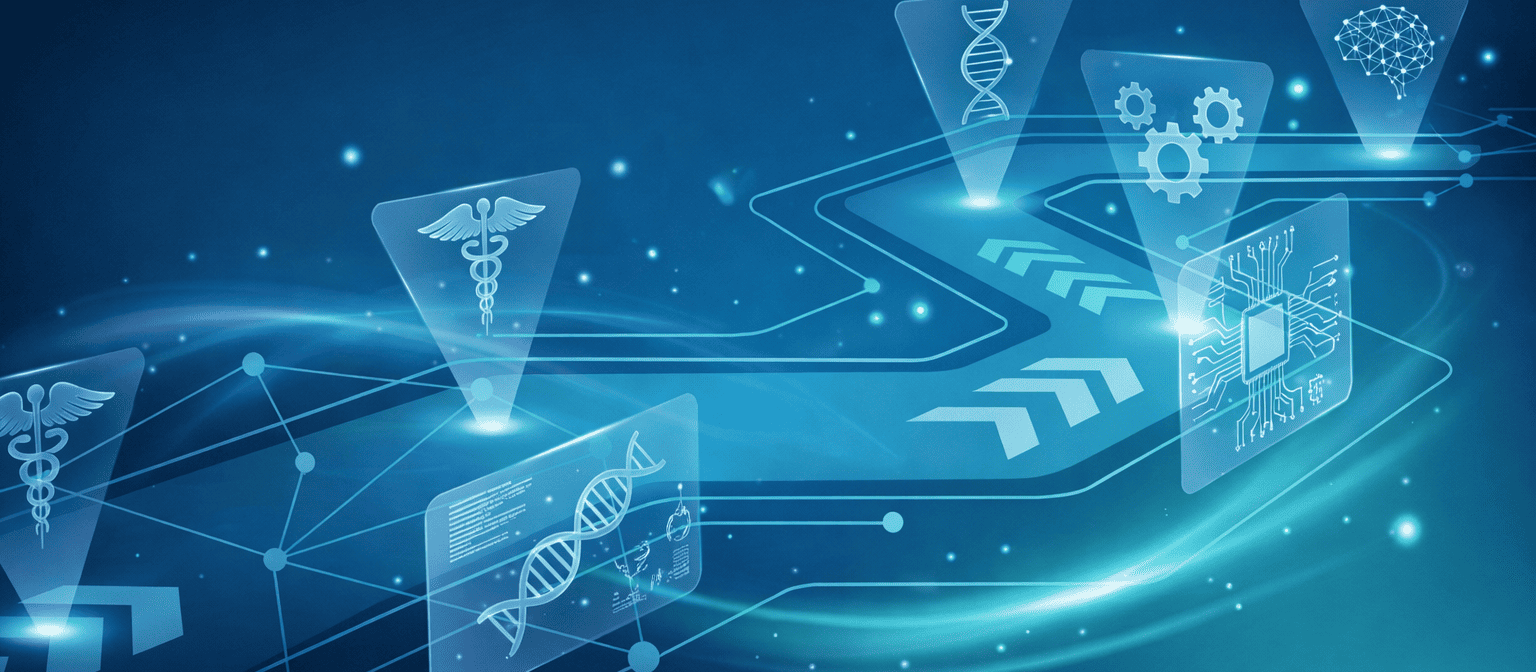Bringing the Power of Artificial Intelligence (AI) to the Internet of Things (IoT)
The Internet of Things (IoT) and Artificial Intelligence (AI) are strong technologies individually. You get AIoT – the artificial intelligence of things when you combine AI with IoT.
IoT solutions and AI solutions both are unique and carry the potential to transform an enterprise digitally. It is projected that companies could invest up to $15 trillion in IoT by 2025. Some believe that the Internet of Things offers a potential economic impact of $4 trillion to $11 trillion per year by 2025.
The IoT and AI solutions are probably becoming an essential part of the future for most businesses. IoT and AI alone are captivating. This combination, known as the AIoT, can change the future of small and medium-sized enterprises and the corporate world.
What is Artificial Intelligence of Things (AIoT)?
The artificial intelligence of things (AIoT) refers to the idea of integrating AI capabilities into IoT devices to form an intelligent and connected system. Here, IoT is the sensory organs, and AI serves as the system’s brain.
An IoT system collects, analyses, and makes intelligent choices in real-time (without human intervention). A network of linked devices turns into an intelligent machine with the integration of AI in IoT, where they can learn and respond (in real-time) and improvise.
Organizations may leverage the capability of AIoT to alter their business operations to promote digital transformation and ultimately move towards modernization.
Where Does AI Unlock IoT?
IoT consists of sensors integrated into machines that give data streams via internet connectivity. All IoT services follow five fundamental steps called to create, communicate, aggregate, analyze and act. The value of the “act” is undeniably based on the preliminary study. Therefore, during the analysis stage, the specific IoT value is established. This is where AI technology plays a key role. While IoT provides data, artificial intelligence gains the capacity to unlock answers, both creativity, and context, to drive intelligent action. Because sensor data can be evaluated using AI, businesses can decide in an informed way.
The artificial intelligence IoT prevails with regards to accomplishing the following agile solutions:
- Manage, analyze, and obtain meaningful insights from data.
- Ensure fast and accurate analysis.
- Balance requirements for a localized and centralized intelligence.
- Balance personalization with confidentiality and data privacy.
- Maintain security against cyber-attack.
Benefits of AI and its potential to unlock IoT
AI technologies in the IoT province work towards answering three main questions:
- What will happen? (Predictive analytics)
- What should be done? (Prescriptive analytics)
- What is the best thing to do, and what can be done to work better? (Continuous analytics)
AI technologies like machine learning, and AI voice recognition are easing industrial processes from end to end. Major benefits of AI in IoT are:
- Increased Operational Efficiency
Traditional operating methods are time-consuming and no longer feasible. Machine learning technologies provide valuable services in processing and analyzing real-time and existing data to identify correlations in the most complex ways, sometimes in unlikely places. Using the results insights, companies have a clear image of their operations’ current and future status.
- Better Products and Services
The integration of AI and IoT technology leads directly to the development of new goods and existing ones. NLP (Natural Language Processing) technology is growing continually to ease communication between people and gadgets. The self-driving vehicles of Alexa and Tesla are excellent instances of AI working together with IoT.
- Eliminating Costly Unplanned Downtime
Sudden operating breaks lead to enormous losses for businesses. AI has been shown in predictive maintenance to save businesses from such losses through warnings of obstacles, such as equipment failure much ahead of time, and minimize the time needed to organize maintenance operations.
- Risk Management
Many industries combine their IoT applications with AI to detect threats from many fields, including cybersecurity and industrial safety. Automated alerts and actions are triggered with the help of AI, providing effective risk management and saving valuable time.
Ready to transform your innovative ideas to create a positive impact?
Our team of experts is here to guide you through every step of the journey, ensuring your vision becomes a reality.
Get in touchImpact on Different Industries
Some industries undergoing transformation are:
1. Manufacturing
To analyze the future and enhance productivity, all manufacturing industries, including automobiles, aircraft, home appliances, f&b, mining, and others, integrate smart sensors into their machinery. They want to establish an independent industrial unit to be the next rage. These sensors allow the industry to detect threatened regions and thereby reduce machinery losses.
2. Smart Homes
IoT led to the development of smart home ideas, in which all the devices have a common network connected. All these gadgets can comprehend the commands of their user by combining this with AI and make smart decisions appropriately. An intelligent home technology strives to improve and make our lives comfortable by offering the opportunity to control equipment remotely, regardless of the location.
3. Body Sensors
Smart detectors are quite useful for sensing the health of various activities. A multitude of pharmaceutical firms finances medical sensors that can assist individuals in tracking their health chores. For example, these sensors can aid in blood sugar evaluations and the event of an emergency release of insulin. These sensors are used to see their personnel’s load capacity and position by construction businesses to avoid any injury and improve efficiency.
4. Airlines
Sensors are placed in aircraft that monitor the importance of many risks and errors. These sensors predict future errors and their degree of severity to lessen aircraft downtime and increase passenger safety. These sensors can potentially be used by airlines to identify maintenance issues that might lead to flight delays and cancellations.
5. Oil Rigs
Oil industries have to invest lots of funds in procuring oil drilling machinery. The machinery might cost the companies a significant loss. Oil companies can leverage smart sensors by attaching them to the oil machinery to make preventative maintenance analyses and cut operational costs.
The Final Say…
The AIoT idea is still relatively new, but companies need to understand the benefits AIoT may offer to your organization.
Organizations using AIoT applicationswill be more diverse and competitive and make intelligent decisions, optimize operations, enhance predictions, and give their customers significant value.
Need a reliable artificial intelligence software developer to help with your next innovation? Contact us today to see if we are the right team for you.
About Dash

Dash Technologies Inc.
We’re technology experts with a passion for bringing concepts to life. By leveraging a unique, consultative process and an agile development approach, we translate business challenges into technology solutions Get in touch.







